It’s the second layer of the internet and more valuable than price
In this piece, I will explain how Bitcoin is built like TCP/IP, the two protocols that are at the foundation of the internet. Without protocols, there would be no digital revolution and our entire lives would be drastically different.
Throughout, are snippets from Flavio Copes’ Valley of Code that I’ll use to explain why the value in Bitcoin lies more in the protocol than in the asset.
Flavio’s site is dedicated to programming and learning other web-related skills. Several years ago, I stumbled across his work and was very impressed at how simply one of his tutorials broke down the core foundation of the internet: TCP/IP (Transmission Control Protocol/Internet Protocol).
In the past, I’ve written a few related pieces here and here. In this update, I hope to explain the fundamental value behind why Bitcoin/bitcoin is important.
Fundamentals are more important than price.
Over the long term, fundamentals are the true driver of any asset. Fundamentals are rooted in having a low time preference (Bitcoin Standard). Even though this mantra is a core ethos to the Bitcoin community you still consistently see fiat-brained, high time preference behaviors… Especially, near the end of bull markets.
This is classic TradFi behavior. A human emotion I’m almost convinced we’ll never be able to remove as long as price is part of the equation. “Money” or rather currency makes us all do crazy things!
What shocked me about Flavio’s breakdown was how simply he explained a rather complex topic, and how well it also describes Bitcoin. Having been more than two decades since I dove into protocols, network architecture, and other related details. This was a nice refresher. A basic description of the internet is:
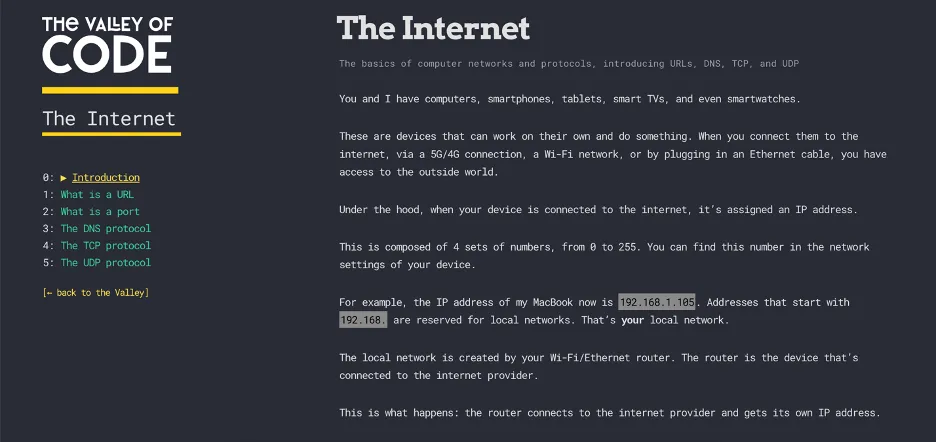
At the core of Bitcoin, you’ll find many of these same characteristics with nodes networked together to support Bitcoin wallet addresses that make transactions that are compiled and processed by miners that act similar to ISPs (traditional Internet Service Providers). The latter confirms and bundles transactions so that transfers happen across the Bitcoin Network.
This technology is transitioning us from an Industrial Society to a Digital one and the move is just as drastic as our last hop from an Agrarian to an Industrial Society (18th – 20th centuries).
Future winners will be rewarded just as handsomely, and losers will find themselves just as debilitated as those during the last major transfer of wealth. The one thing that’s for sure is we’ll all be operating in a “new world” with a different set of standards.
The power of a digital world is that everything will be connected.
In a networked world, the value of the network is much more powerful than sparsely linked silos. What’s different about the 21st Century is that we’ve “Made Math Great Again”. Power Law statistics (exponential growth) and Metcalfe’s Law are the drivers of the new age which operates with data as the new oil.
We’ve watched this story before -> the evolution and adoption of the traditional internet (TCP/IP). We saw what happens when information, business, and communication are made accessible to almost everyone, everywhere. Now, with the emergence of Bitcoin, we’ll see it happen with money. Effectively, we’ll get API-money.
In the new world, banks, self-sovereign digital wallets, nodes, people, businesses, media, etc. all will have an address that can post data or receive money. It creates optionality. Something truly for the people.
We’ve never had this before with this level of integration potential, but we have seen the ramifications of digitization across almost every industry. This wave will be much bigger and much more drastic. Especially when you consider the potential of AI, but that’s outside the realm of this discussion.
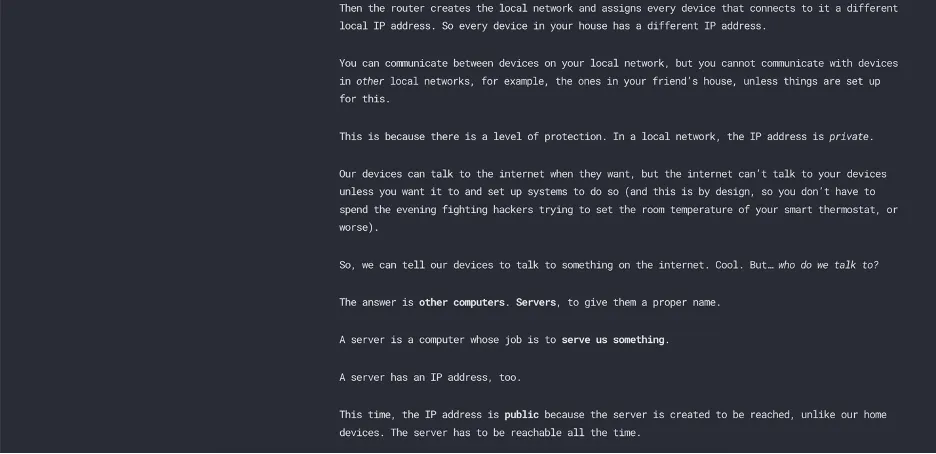
Local area networks (digital) are now a dominant part of our lives. Some sort of local network touches pretty much everything we do. Because our networks are still rather siloed, it’s great when we have access but not so great when we can’t connect. Unless we have an FTP, cloud, or some sort of remote server access, we can be left out.
This sounds very much like our current state of banking when you read between the lines.
By and large bankers, specifically central bankers, have fended off digital transformation with regulation, bureaucracy, and intentional faux interest for a whole host of reasons. I’ll let you guess them, though they are quite obvious.
Bitcoin and other cryptocurrencies are bridging the gap not only for disjointed and disconnected money but also paving the road for new digital infrastructure that is more connected, more integrated, and more available than our existing TCP/IP setup.
Of course, some are more secure (Bitcoin) than others (Crypto). But, together they will bring about a new wave of innovation that paves the way for the next Google, Amazon, Netflix, etc.
The Bitcoin protocol acts in the same manner as TCP but with security and cryptography as a core foundation. Bringing ownership back to the user rather than the platform.
More direct, peer-to-peer, communication happens without the need for an intermediary who historically has siphoned off the data for their own personal gain or has imposed some form of censorship whenever it behooved the platform to do such a thing.
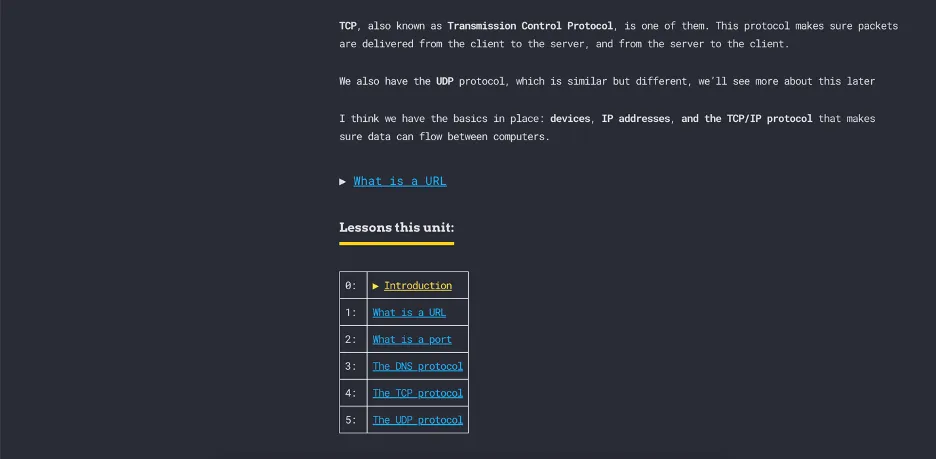
This is fundamentally what is different about the Bitcoin Protocol that sits atop TCP/IP; the traditional internet protocol.
To make things simple on the internet, we don’t have to remember IP addresses, servers, etc. We just need to type the Domain name (google.com, espn.com, enterwebsitename.com), and the information is displayed.
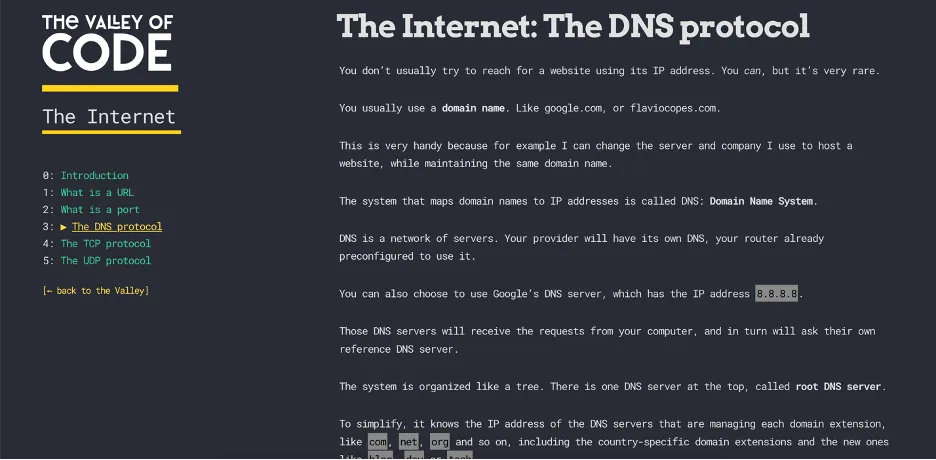

Bitcoin is currently (and quickly changing) at the state where we are entering the IP addresses and having to know the details of the servers, etc. BUT, that will and is changing. I imagine soon, the next wave will bring a host of applications (they’re rolling out) that will have better UI/UX so that much of this is hidden.
You’re starting to see similar domain names and pay-to-a-user email type functions much like we are comfortable with on the traditional internet. That’s when Bitcoin goes mainstream. When the long complicated addresses are removed, much like not having to use IP addresses on the internet.
A friend, Mark Jeftovic who runs a traditional internet domain business, has done some early work on what domains might look like in Bitcoin. So, this type of innovation is coming, and it’s needed if we want to get 4-6 billion people onboarded onto Bitcoin.
What’s important when referencing these early internet RFCs is that there structured exactly like the Bitcoin Improvement Process. These RFCs are how DARPA built the early stages of the internet. RFC 793
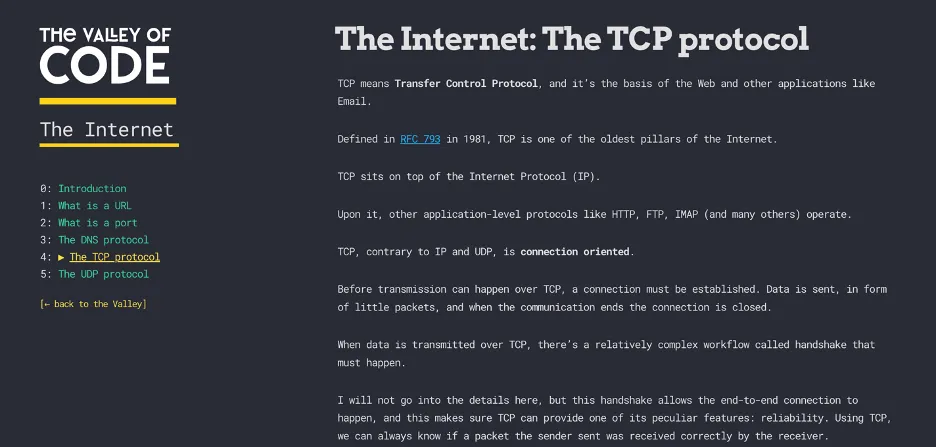
How they voted and intellectually hashed out what *standards* were needed to run a functional information system accessible by the entire world. These were some of the smartest of smartest “hackers” building out a system that powered the next major wave of human evolution – the digital revolution.
15 years ago, Satoshi did the same. Whomever he, she, they, or whatever global group it was that created the Bitcoin Protocol, seems to have recognized the value of building a global system in the same manner.
It appears Satoshi copied this template while also figuring out how to incorporate cryptography. Most importantly, Satoshi solved the double spend problem. For the first time, digital money could not be copied. Allowing money and data to live on the same chain. In my opinion, this has a much greater implication than cloud computing and we have a reference for how that turned out.
As we enter into a new era, we have created a base layer digital money that can harness new energy sources, better integrate and power commerce, and continue a history of technological innovation throughout the entire world. Not just in centralized portions of the globe.
Today, Bitcoin Core Developers carry on this torch, “hacking” and having high-level, extremely intelligent debates to build a more connected and secure monetary system.
Like TCP/IP, Bitcoin is in search of its secondary protocol (layer 2) to be the lightweight option that’s faster, less clunky, and cheaper. UDP, reminds me of Lightning Protocol for Bitcoin, or potentially Fediment or any other L2 that eventually becomes the layer that:
“This implies that it’s faster, each packet sent is more lightweight, as it does not contain all the information needed in TCP, and it does have a lighter handshake process. The drawback is that UDP is not as reliable as TCP.” RFC 768
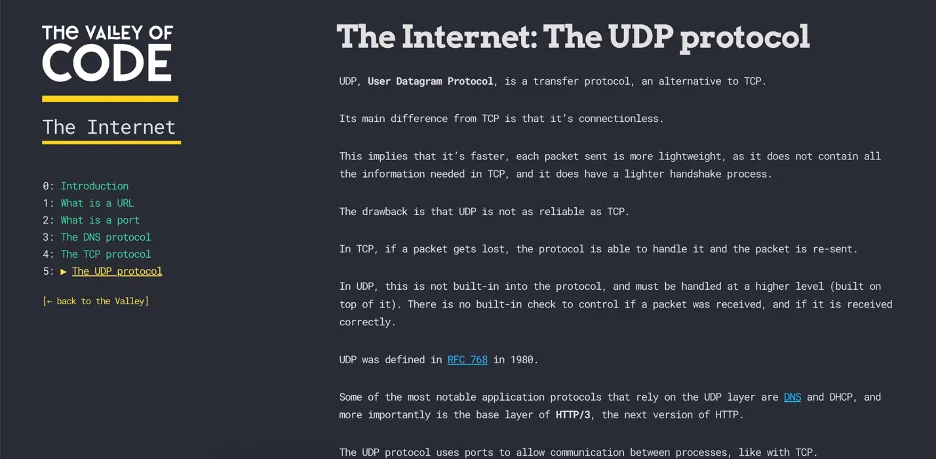
In the traditional currency space money acts much the same. In the US, we have gold as the base clunky layer and treasuries and dollars as the lightweight faster L2. In China, they have the Yuan as the base and the Renminbi as the L2.
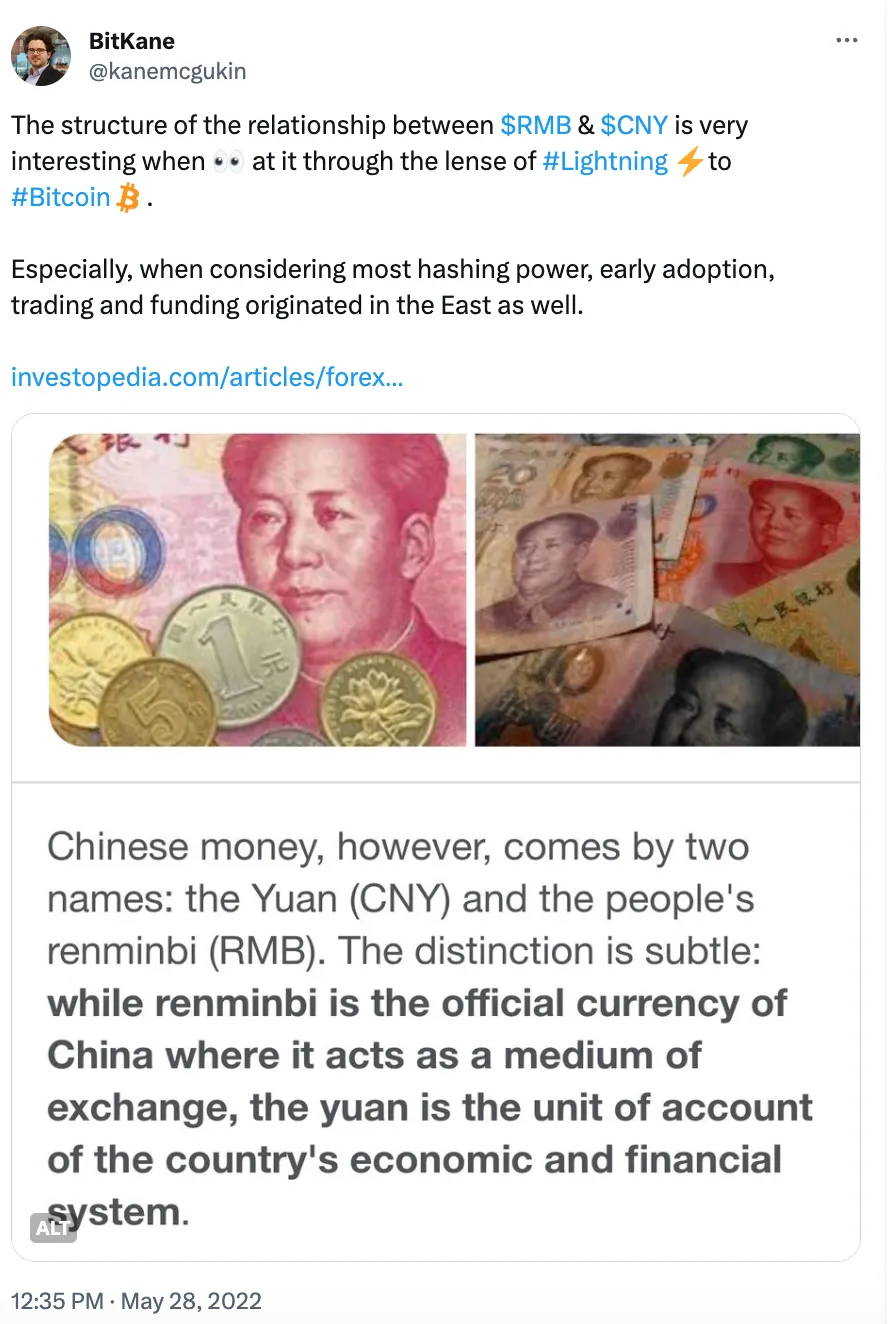
While Bitcoin is a new innovative protocol, it’s just another addition to better connect our global systems, people, and money. It’s also a case of, “there’s nothing new under the sun”.
As innovation happens, time, names, technology, and money change but human emotion does not. The ride will be the same but feel different based on our behaviors and the advisories who feel threatened.
Follow Kane McGukin’s Substack here
Mark Jeftovic’s forthcoming ebook The CBDC Survival Guide will give you the tools and the knowledge to navigate coming era of Monetary Apartheid. Bombthrower subscribers will get free when it drops, sign up today.


While there is value and accuracy in the analogy between Bitcoin and the Internet, it's very important to emphasise the most significant differences lest the fundamental values of Bitcoin be obscured.
The description of "Miners" "that act similar to ISPs" is incorrect and utterly misleading. It is inconsistent even within the article where it says "without the need for an intermediary."
No "miner" stands between you and Bitcoin participation. Consider that a node effectively connects to all miners, and note that you can mine yourself, trivially, but it very unlikely you can be your own ISP. There are no "IP addresses" to be allocated by institutions at the Bitcoin "second layer of the internet" nor DNS registration formalities.
The risk of installing public profit seeking companies as some kind of gatekeeper and critical service for Bitcoin is obvious, and wrong.
Bitcoin needs mining, and every holder should do some as a service to their own security and consideration for the network.
Bitcoin needs mining, it doesn't need shareholder beholden, profit optimising, large scale commercial miners. The proposition that they are the unique source of Bitcoin's security ignores the known perils of centralised gatekeepers. That risk needs to be constantly front and center for all aspects of Bitcoin.
Great input but I think you might be missing the analogy which is, this is another evolution of tech that functions just like what we already know. The internet does not work without ISPs. Bitcoin, the network, does not work without miners because there is no way to facilitate transactions (blocks); especially for the average users.
To make it clear, here are the answers from Chat GPT when asking if Bitcoin will work without miners and if the internet relies on ISPs.
– "No, the Bitcoin network relies on miners to function. Miners play a crucial role in the operation of the Bitcoin blockchain, and their activities are essential for validating transactions, securing the network, and adding new blocks to the blockchain."
– "The Internet relies on Internet Service Providers (ISPs) to function. ISPs are organizations that provide the necessary infrastructure and services for users and businesses to connect to the Internet. "
Everyone can mine but it's financially a bad decision for most at this point. Additionally, without miners, the validated transactions from nodes will not be put into blocks, and without blocks being created the nodes would not be able to validate them.
Yes, you could say that nodes are like ISPs but between the two it takes miners to make it work just like for the internet to work you need an ISP (for most people).
Mining pools are already a form of centralization and you're seeing the same with LSPs on the lightning layer because it's too costly and time-consuming for the average user to figure out how to route a payment or troubleshoot a failed payment. At this stage failures are still relatively high. All of these things will be figured out, just like they were on the internet.
Much of these layers are laid out in old classic networking/security books like Counter Hack – https://www.amazon.com/Counter-Hack-Reloaded-Step-Step/dp/0131481045/ref=asc_df_0131481045/?adgrpid=60258872537&gclid=Cj0KCQiAnrOtBhDIARIsAFsSe52ijqxqebD1kcQsLMr7UPKCbdI71Rq4C5YVuv2yIho3kl15w6HUVRIaAr86EALw_wcB&hvadid=312176709100&hvdev=c&hvdvcmdl&hvlocint&hvlocphy=9010952&hvnetw=g&hvpone&hvpos&hvptwo&hvqmt&hvrand=8185361773339714633&hvtargid=pla-490478970177&linkCode=df0&mcid=4dea59ed8f5c3bd7b407b0269111147a&psc=1&ref&tag
It sounds to me like you are conflating running a Bitcoin node with mining. The latter is not trivial, not anymore – and requires a non-trivial investment in an ASIC miner and the infrastructure to host it (if only to isolate the sound they throw off). By contrast, you could run a full node on a Raspberry Pi.
I would also say that it is within reach for someone with even moderate technological chops to run “their own ISP” since it’s easy to get a residential broadband connection and from there you could run your own webserver, your own email server and anything else you can think of. It’s called “the sovereign computing” movement and it’s gathering steam.
Hey, thanks,
What about ths question:
Bitcoin may be the greatest medium of exchange (MoE) in digital (for one, message, offer and acceptance and the value is sent together, and final); and it may someday become a UoA.
But can it's store of value (SoV) be sustained without continuous net positive buying using fiat money?
(Albeit, the fiat system is doing all it can to help by sending flight capital to it.) What I mean is that if people substantially stop buying it bc world political and banking situation stabilizes (unlikely), what happens to price.
I do see another utility: That value (w/finality) and the message can be together now. This never was possible before.
(Saw the article at ZH.)
What do you think about the future of z-cash? I was drawn to it because Snowden helped launch it and has many similarities to BTC. Thanks in advance.